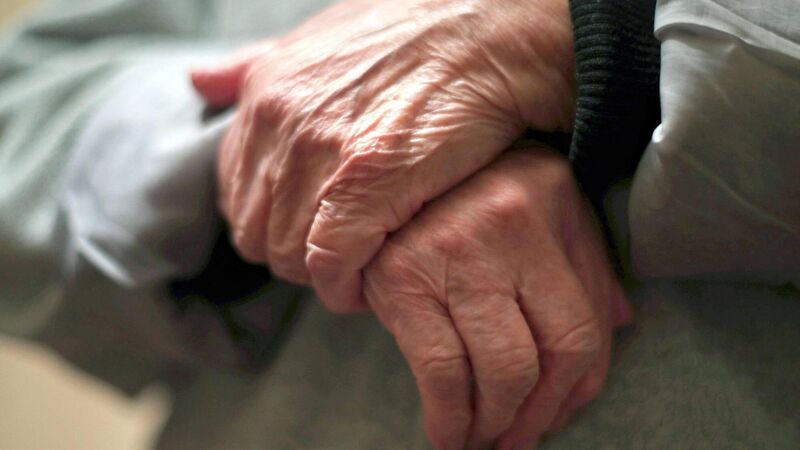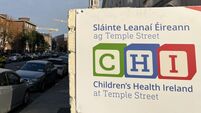Nursing home visits evidence of the benefits of the vaccine programme, Donnelly claims

Mr Donnelly also said the impact of vaccination on healthcare workers has been "nothing short of astonishing". Picture: PA
Nursing home residents are to permitted to receive up to two visits per week as restrictions on the sector are finally eased as the benefits of Covid-19 vaccinations take effect.
The change will take effect from March 22, and demonstrates the type of vaccine bonus that can arise from the rollout of the vaccination programme, according to health officials.
However, the easing of restrictions appears unlikely to go much further in the coming weeks, with health officials warning the situation remains 'precarious' in Ireland.
While the 5km distance limit and restrictions on construction are expected to be eased on April 5, Tánaiste Leo Varadkar has said the likes of hairdressers will not open until "May at the earliest", and the hospitality sector will be even later.
Some 592 cases of the virus were announced last night, as well as an additional ten deaths.
Professor Philip Nolan, chair of the Nphet Irish Epidemiological Modelling Advisory Group, said the incidence rate in Ireland remains high and "our situation is precarious".
He added: "Increases in mobility and workplace attendance could potentially increase infection in the coming weeks.
"The R-number is estimated as stable at 0.6-1.0, but it is essential over the next few weeks that we stay home, continue to limit our contacts, and suppress transmission.”
The new changes for nursing homes will come into effect on March 22 and are applicable for homes where eight out of ten residents and staff have been vaccinated. Under the new guidance, residents can receive up to two visits per week and there is a longer time limit on these.
The criteria for such visits have been broadened from strictly compassionate grounds to include loneliness, distress, and birthdays.
Health minister Stephen Donnelly said the changes are evidence of "the type of benefits that arise from the implementation of the vaccine programme".
Mr Donnelly also said the impact of vaccination on healthcare workers has been "nothing short of astonishing".
He said: "The number of staff out of work because of Covid, directly or indirectly, was several thousands in January. It is now in the low hundreds and continues to fall.”
He said it is understandable that questions are now being raised about the next groups to be vaccinated, and singled out family carers, the gardaí, teachers, and funeral directors.
Mr Donnelly said "a full review of the population to be vaccinated" after the current at-risk groups is ongoing. Further announcements are not immediately expected.
In a further boost to vaccine stocks here, the European Medicines Agency approved the one-shot Johnson & Johnson vaccine for use in Europe. It is the fourth vaccine endorsed for use in the EU.
Meanwhile, Irish health authorities have defended the use of the AstraZeneca vaccine here.
It follows a decision by Denmark, Norway and Iceland to temporarily suspend their vaccination programme to investigate reports of blood clots among a small number of people who had the shots.
Two cases of thromboembolic disease have been reported here in people who had this vaccine.
Professor Karina Butler, chair of the National Immunisation Advisory Committee said those concerns have been addressed. She said investigations in the UK and in Europe have shown cases of these blood clots occurred at the same rate in vaccinated and unvaccinated people.
Ireland is, along with UK regulators and the European Medicines Agency, backing the jab’s safety, she added.
Her remarks came in the context of stinging criticism of AstraZeneca's deliveries to date by HSE CEO Paul Reid, who said confidence in AstraZeneca to meet delivery plans has been 'rocked' due to supply issues.





